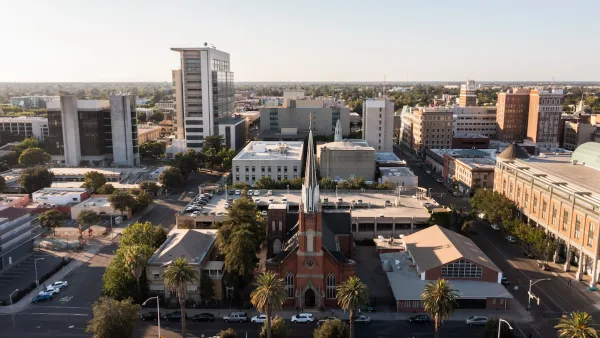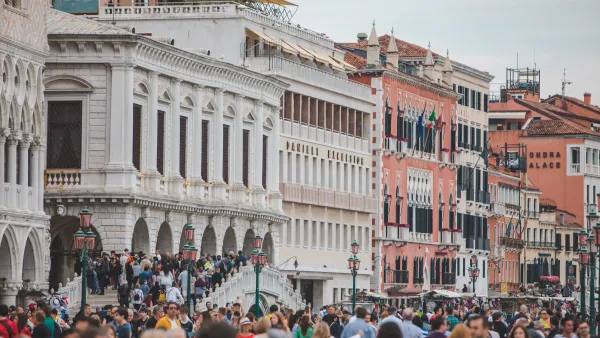In recent blogs I have written about places and plans in many different locales and through time. Students often ask, “do I need to visit places to know about them”?
In recent blogs I have written about places and plans in many different locales and through time. Students often ask, "do I need to visit places to know about them"? My answer is typically no, that a brief visit can be worse than no visit, as one is potentially locked in the tourist gaze, and reading multiple works on a place can provide a really good sense of the locale. The field of history relies on people learning remotely; it is possible to do this with geography while also keeping your personal carbon footprint low.
Some people feel travel will help them get into graduate school. Foreign travel, particularly in high school or as an undergraduate, is one of the class of experiences that I call a characteristic, not an achievement. Achievements are key in gaining admission. Foreign travel early in life typically reflects features of your environment. For example, it often shows that your family is educated, affluent, and in good health--so they do not need financial and personal support from you and there may be an expectation of travel. It may also indicate that you are from a family of immigrants and you have relatives to visit. Alternatively, your school teachers, college, or faith community may have been energetic in arranging excursions for foreign language training, service projects, and the like.
Being situated so that you do travel can certainly lead to self reflection, new knowledge, political insights, and such, which are achievements. If you want to work overseas, some substantial experience can be useful. In the U.S. the Peace Corps is available, for example (though in many other countries such programs target the highly experienced only, so this is not something to be expected outside the U.S). But significant reflection and knowledge about places and plans can also be spurred by reading Salman Rushdie or Jane Jacobs (among others of course!), becoming active in supporting an international aid group, and working in a regular job. There are many terrific groups that do important work abroad and that can use your support (a great use for some of the funds you might use for travel). Reading about them can increase your knowledge about places. There are some wonderful blogs, internet sites, and publications that can help you understand places and plans. I have highlighted many such sources in earlier posts. Current favorites include:
- Squattercity blog by Robert Neuwirth dealing with squatters around the world:http://squattercity.blogspot.com/
- Gapminder, "unveiling the beauty of statistics" with wonderful interactive charts and nicely produced videos: http://www.gapminder.org/
- International Institute for Environment and Development that has a terrific publications list, many free: http://www.iied.org/pubs/
- Charity Navigator, with reviews of charities and aid organizations: http://www.charitynavigator.org/
Overall, reading, imagery, internet sources, and talking with people are really viable ways of learning about places, plans, and processes. Learning about planning history, the focus of many of my blog entries this year, requires such sources.
I have been writing about planning history and have provided blogs about plans and places; a process blog is coming up! Thanks to Amanda Wilson, a graduate student at Cornell, for very helpful comments on this blog.

National Parks Layoffs Will Cause Communities to Lose Billions
Thousands of essential park workers were laid off this week, just before the busy spring break season.

Retro-silient?: America’s First “Eco-burb,” The Woodlands Turns 50
A master-planned community north of Houston offers lessons on green infrastructure and resilient design, but falls short of its founder’s lofty affordability and walkability goals.

Delivering for America Plan Will Downgrade Mail Service in at Least 49.5 Percent of Zip Codes
Republican and Democrat lawmakers criticize the plan for its disproportionate negative impact on rural communities.

Test News Post 1
This is a summary

Test News Headline 46
Test for the image on the front page.

Balancing Bombs and Butterflies: How the National Guard Protects a Rare Species
The National Guard at Fort Indiantown Gap uses GIS technology and land management strategies to balance military training with conservation efforts, ensuring the survival of the rare eastern regal fritillary butterfly.
Urban Design for Planners 1: Software Tools
This six-course series explores essential urban design concepts using open source software and equips planners with the tools they need to participate fully in the urban design process.
Planning for Universal Design
Learn the tools for implementing Universal Design in planning regulations.
EMC Planning Group, Inc.
Planetizen
Planetizen
Mpact (formerly Rail~Volution)
Great Falls Development Authority, Inc.
HUDs Office of Policy Development and Research
NYU Wagner Graduate School of Public Service






























